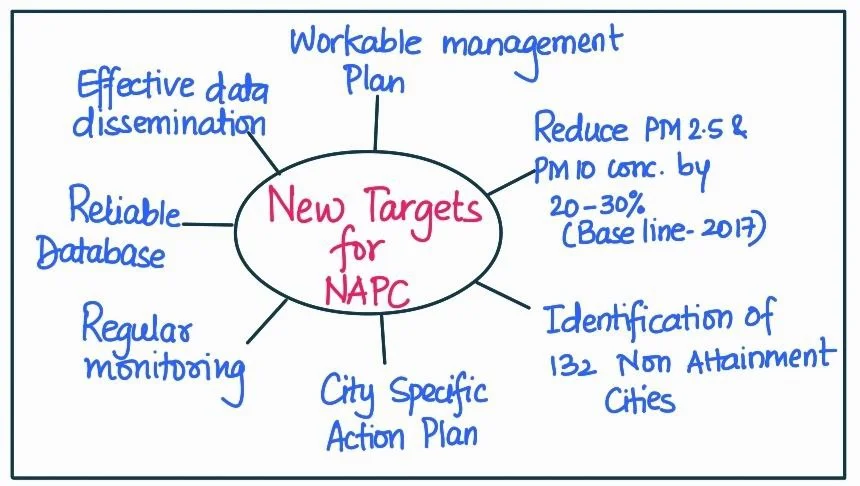Answer:
Approach:
- Introduction: Brief about The National Clean Air Programme.
- Body: State the key features of the National Clean Air Programme [NCAP]
- Conclusion: Conclude your answer with a futuristic approach.
|
Introduction:
The National Clean Air Programme (NCAP), introduced by the Government of India, is a significant initiative aimed at combating air pollution and improving air quality across the country. This comprehensive program encompasses various measures and strategies to mitigate pollution sources and promote clean air for the well-being of citizens.

Body:
- Comprehensive City-specific Action Plans: The NCAP focuses on implementing city-specific action plans in 102 non-attainment cities, where pollution levels exceed the prescribed standards. These action plans outline specific strategies and measures to reduce pollution levels in each city.
- Sectoral Interventions: The program adopts a multi-sectoral approach, targeting various sources of pollution. It includes interventions in sectors such as transport, industry, residential, and waste management to effectively address the issue of air pollution.
- Collaborative Governance: The NCAP promotes collaborative governance by involving central and state government agencies, local bodies, and other stakeholders. It emphasizes the coordination and cooperation between different departments to achieve the goals of the program.
- City-level Monitoring Networks: To monitor the air quality in cities, the NCAP establishes city-level monitoring networks. These networks consist of continuous ambient air quality monitoring stations to track pollution levels and enable data-driven decision-making.
- Technology Interventions: The program encourages the adoption of technology interventions for air pollution control. It focuses on promoting cleaner fuel options, implementing emission standards for industries and vehicles, and adopting advanced pollution control technologies.
- Public Participation and Awareness: The NCAP recognizes the importance of public participation and awareness in combating air pollution. It aims to involve citizens in the process by raising awareness about the adverse health effects of pollution and encouraging public participation in initiatives for cleaner air.
Conclusion:
The key features of the National Clean Air Programme (NCAP) include setting up air quality monitoring systems, implementing emission control measures, promoting public awareness and participation, strengthening enforcement mechanisms, and coordinating efforts at national, state, and city levels. By adopting these measures, the program strives to achieve sustainable and breathable air for all citizens of India.
